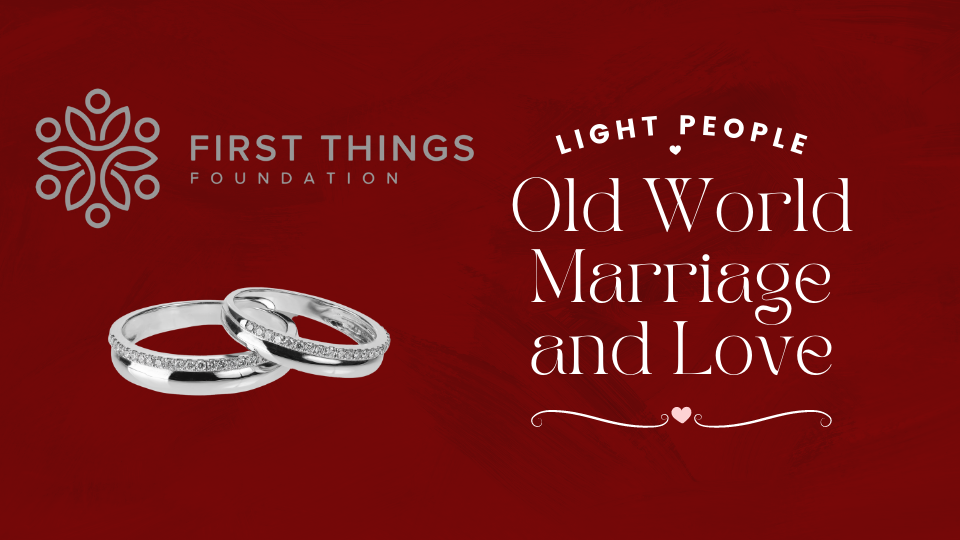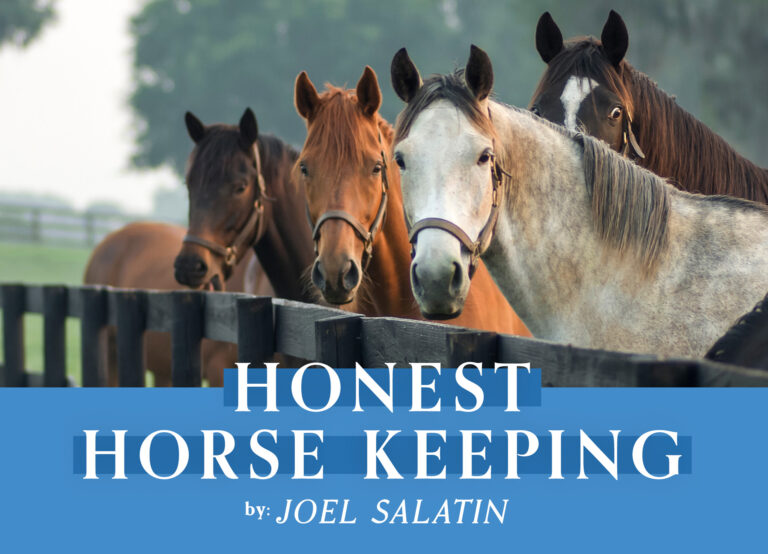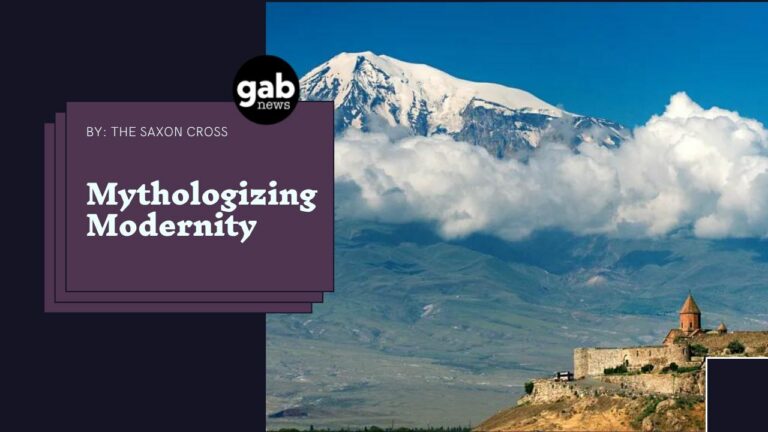By John Heers, of First Things Foundation
Alert: This month’s post is not about love as understood by people living on this side of the Victorian age. This article won’t make fans of the movie Titanic particularly happy, and few will want to sketch out paunchy heart-shaped doodles as they read this.
Let me explain, but first, a term: Light People.
In this article and all subsequent articles, we will use this term as a way to understand ourselves. Light People is a way to describe those who have inherited the way of the Enlightenment. Westerners. Rationalists. Scientists. Materialists. Light People describes people of a particular epoch, and if you like numbers, think 1492 to 1945. Or 1517 to 9/11/2001. Or think Francis Bacon to Bacon Bits. Think Europeans, or white people, if you like, though there are plenty of black and brown people that are Light People. Today you can find Light People on every continent because the Light People have come of age, and their age, our age, is what we call modernity. And this epoch I’m describing is a religious time indeed. Light People created “the secular,” and this notion is the modern world’s geometrical given, the 0 on the axis of life. And that 0 is a very religious concept because 0 represents the ultimate good. It is the idea that binds, which of course, is a type of ligament, a ligature of the mind, and that is how we will use the word re-LIG-ion in this substack. We will use the ancient understanding of religion as something that binds. Light People are bound by certain principles of the mind, presuppositions, and givens about how the world works. All humans are bound by presuppositions, but not all of us are bound in the same way. As long as this column exists, we will be talking about these Light People principles with regard to other such “Ligs.” We’ll do this as a way to remind us of what we have lost. We’ll do this as a way to re-member reality.
So, that’s a little bit about Light People. Now, back to our first article, an offering about love and marriage.
As Light People, we’ve been taught to think of marriage and love as a stop along the great boardwalk of life. I can remember as a young man wondering with impressionist precision the thought, “Who will she be?” I was a romantic man. And in truth, romance is in us. We are meant for it. And I like that phrase, “meant for it.” The words are pregnant with a type of entitlement. We think, “I get to have romance and sex and all that because I’m human, it’s a part of my inheritance as a hominid walking this earth.” This kind of sexy time thinking the ancient Greeks called eros: That which moves us. Eros did not have negative connotations, not in and of itself. Unlike the puritans of the Protestant age, Greeks taught that eros was a natural thing and something that could be rightly ordered. But unlike the ancient Greeks, who saw marriage between a man and a woman as a bit vulgar and boring, Protestant puritans saw marriage as a kind of ticket that gets you into the amusement park of eros. And in general, most Americans have inherited this concept. Romance is the thing that dreams are made of.
But not really, not if we take a sober look at marriage through the ages. In teaching not a few classes on this and reading not a few books, one of which is Stephanie Coontz’s History of Marriage, it becomes clear that pre-light people marriage, while definitely a stop on the boardwalk of life, was the kind of stop that had the hazy, hoary feel of an NYC subway station in July. Marriage in the old world was like meeting your mate on the subway platform, jumping through the closing doors of the D-train, and beginning life together on a sweaty subway car driven by an unseen driver.
In the old world, this vehicle without a driver, this transit machine of love, was built for your salvation, or if you don’t like that word, it was made for your health and well-being, your redemption, your nirvana, your karmic release, your becoming one with the universe. St. John Chrysostom, a 4th Century bishop from Constantinople, says this,
“Let your home [marriage] be a sort of arena, a stadium of exercise for virtue, that having trained yourself well there, you may with entire skill encounter all abroad.”
For many cultures, especially those we think of as driven by axial age morality, marriage was a vehicle built for your entrance into the good, the beautiful, and the true.
Marriage was two things. It transformed its adherents into anticipating the eternal, and it was a transparent transaction that provided an insurance policy against the evils inherent in the human condition.
Marriage was a transaction because life is nasty, brutish, and smelly. The demons are real, and we all know them: Poverty, illness, lockdowns, loneliness, war, famine, fungus, death. Coontz writes all about these things as reasons for old-world contractual marriage. And it’s true. For most cultures, marriage was a vehicle meant to restrain these forces and to keep you safe. But it’s even deeper than that. In many old-world traditions, the marriage vehicle cleansed you from the inside; it was transformational. The marriage vehicle was meant to protect you from what resides within. See, it’s your sucky spirit that the vehicle would repair. Selfishness, greed, narcissism are just a few of the spiritual ailments couples carry into marriage; they are the spiritual things that lead to diavolos, or disintegration. In the old world, marriage was a sacred participation, a trodden way that siphoned and distilled spiritual maladies, rooting them out and offering them up like little cancers dug out and held high before God, an offering and a revelation about who we are. Marriage, at least certain old-world marriage traditions, aimed to make us woke.
Here’s a quick example from a friend of mine, well, four friends of mine in Mali, a Muslim family. Daouda was the husband, and Takadi, Umu, and Fatima were his wives. And though they didn’t know it, my friends were all part of what Light People in the USA Today call a “quad.” Not that my friends would ever have called it that. For them, they were just plain old married. Douda, the husband, would often tell me how being married to his wives was a way for him to get straight with Allah. “Ne be sira ta tila Allah fe,” he’d say. “Marriage gets me on the straight road to God.” Marriage was transformational for Douda, but notice the lack of New World romance in it all. It’s not there, not as a rule. Take a look for a moment at the Hindu marriage ceremony.
In that ceremony, and be aware that there are many variations on Vedic marriage, a knot-tying tradition stands out; it’s called the Mangal Sutra. This ceremony gives husband and wife the authority to help the other commit beautiful acts of dharma. Think of Dharma as cosmic good. At one point in the ceremony, the couple asks the guru, or spiritual leader, to let them into the marriage so they might dispose of their Aranee, their debts. Without the authoritative other, the bride and bridegroom are incapable of ridding themselves of debt. Each needs the other in the same way thought needs action. In fact, in the old Vedic school of life, the woman represents thought, and the man is action. Thought begets action; action is impossible without thought. And Moksha, release from sin, is impossible without the authoritative bond of unity. For the Hindu, the point of marriage is the transformation of the soul. The romance was a type of secondary, consequential perk. It was what happened when you got the soul part right, and it took years.
A very similar mode of marriage is in play for old-world Christians. Those folks, Orthodox Christians, wear crowns when they get married. I’m one of those people; my woman and I both wore a crown as I stood beside her 26 years ago. We looked regal, and for my Light People friends in attendance, that was the point of the pomp.
But my friends couldn’t see what our monk-priest was seeing. They couldn’t see what countless billions of old-world spouses have come to know and pass down as the point of marriage, and in truth, they couldn’t see the reality.
The earliest iconography surrounding marriage are those of the crucifixion. Marriage for early Christians was Christ being taken down from the cross, broken, a crown of thorns digging into his skull.
Marriage was martyrdom.
And the crowns that my wife and I wore were a type of promise, an image of death to self. The goal for the old-world Christian couple was to become a martyr to the passions: your sins, your desires, your stuff. The point of union was to straighten spiritual scoliosis.
And wow, this is so not the Titanic. It’s not even Pride and Prejudice. It’s downright depressing.
Unless, of course, there is something like an afterlife. If life is transcendent and we are meant for the next world, then marriage is the best thing that could happen to you. It’s a ride into the heavens. Marriage goes all the way to eleven! Your spouse becomes your spiritual teacher, and what she shows you is just how ugly you can be. However, sometimes, you are revealed as beautiful too. If you learn all this as the point of your marriage, the invisible driver suddenly becomes present. Suddenly the subway ride has a purpose, and so does your life within that car. This is Christian marriage before the Light People.
Next time let’s talk about how the Light People changed all of this. Let’s talk about how love suddenly became the prerequisite for marriage rather than the dross of marriage. Let’s also look at how Light People marriage must end in the acceptance of same-sex marriage, and why such a marriage can’t be marriage at all, at least not in the pre-enlightenment world we call old.
This article originally published on Substack on February 2, 2023, as the first of a new series.






